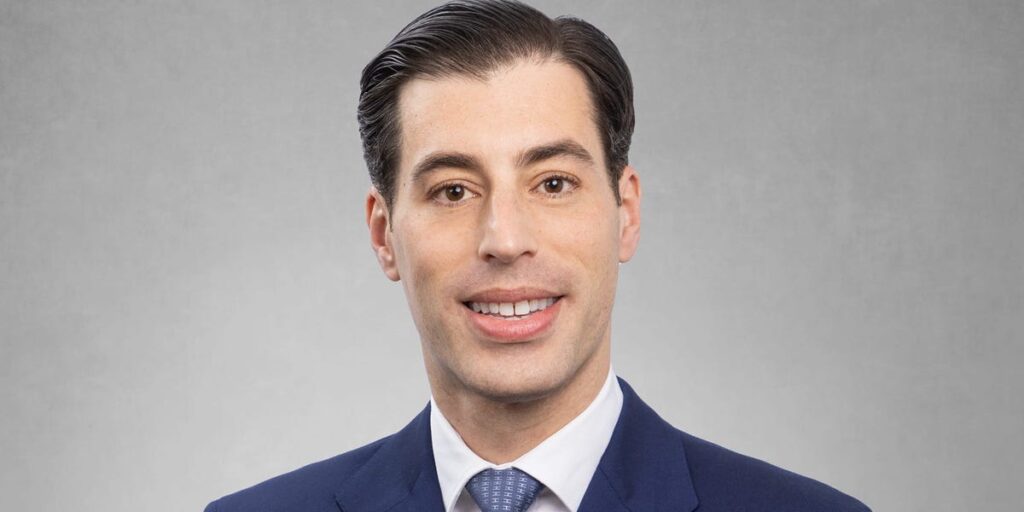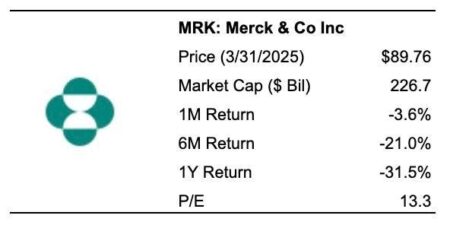This as-told-to essay is based on a transcribed conversation with 38-year-old Robert Furst, a senior VP at Merrill Lynch, a wealth management division of the Bank of America. The following has been edited for length and clarity.
I was really fortunate to have amazing role models in my life, and I’m very intentional about being a role model for my kids.
I joined Merrill Lynch in 2013. I provide wealth management advice to our clients, who include business owners, professional athletes, doctors, and lawyers.
At my job, I’ve focused a lot on educating the next generation about finances. It’s given me a cheat code for dealing with my own kids, who are six and four.
Here are some of the key ways I’ve decided to teach my kids about financial literacy and how I’m planning ahead to set them up for financial success.
Encouraging charitable giving
I don’t think my children are too young to learn about gratitude, compassion, and appreciation. If we start those habits early, they will stay with them for the rest of their lives.
My kids save money in piggy banks for charitable giving. When they’ve accumulated enough funds, they’ll choose, with a little guidance, where to donate those funds. At four and six, my wife and I want our kids to focus on saving for charities and helping the less fortunate.
When my six year old turns seven and starts first grade, I’ll introduce him to investing and we will explore what stocks he would want to create his first portfolio.
My kids have a head start in life with two loving parents with good jobs. We’ve already started putting money away for college. I want to teach them that once a family has “enough” it is crucial to give back.
Letting them try out investing
My dad worked in finance and would cut articles out of the Wall Street Journal for me to read. He treated me like his “junior partner” and talked to me about business decisions he made at work.
When I got birthday money as a kid, I told my dad I wanted to invest it. He let me and this spurred my interest in the market. I saw the power of making a good investment.
I’m planning to introduce my oldest child to investing soon. I want him to use his money to pick some companies to invest in, so he can feel the impact of decisions he makes. Nowadays, it’s relatively easy to open a Uniform Transfers to Minors Act (UTMA) account and let my children pick some stocks.
I do a lot of investment coaching with the children of our clients. Once, a 12-year-old visited our office. We pulled the research reports for companies he’d picked and discussed what can indicate an advisable or ill-advised investment. By pulling research reports of companies he selected, the child felt heard and respected.
The child learned financial terms associated with stock research, so next time he wants to do some digging, jargon will not be a barrier to entry. I absolutely intend to do this with my children.
It’s not about getting kids to have amazing returns. It’s about getting them engaged. If they invest for long enough, they can also see the power of compounding. Time in the market beats timing the market.
Teaching them the value of hard work
I once asked my parents for a video game system, and my mom told me she wouldn’t pay for it.
I ended up working in a friend of my dad’s factory doing simple jobs like packing boxes. Soon, I had enough money to buy myself the game system.
I won’t have my kids working in factories, but they do know that their parents value hard work.
Sometimes, my children will ask why my wife or I have to work late. We let them know that we strive to provide a good life for the family and that we work hard to earn money to pay for food, our home, and their education. I want them to know that nothing is guaranteed in life.
I intend to pay them for chores. It could be as simple as making their beds. That’s not a high-value item, but it’s worth something to me if my wife and I don’t have to do it.
Saving for their future
One of my financial goals is to send both of my kids to college debt-free, so I set up a 529 plan as soon as they had Social Security numbers. A 529 is a tax-advantaged education investment account that can help a child to attend college without incurring debt.
Each child has their own 529. This is important because my children are of different ages and I’ll invest in their 529s in line with when they go to college. As we get closer to college, we’ll lessen the risk level because the money will need to be spent sooner.
I also want to accumulate enough wealth to give my children choices in life. If one wants to work in finance or tech, they may not need help from my wife and me. But if one of them wants to become a social worker, the financial rewards might look a little different.
I don’t want my kids to be held back from doing amazing work in the community for financial reasons. We want to support them so they can make that choice without worrying about the salary difference.
Several families I have counseled help subsidize a child who worked diligently in a less lucrative career, and this is something I admired.
We’re planning for this by setting money aside and only buying what we need. We can afford to buy more luxury goods than we do, and that’s by design.
I’ll probably tell my kids that we’ve got this money set aside for them when they’re around college age. I don’t want to tell them too early as I wouldn’t want them to rely on it.
Do you have a story to share about planning for your children’s financial future? Contact this reporter at [email protected]
Read the full article here















